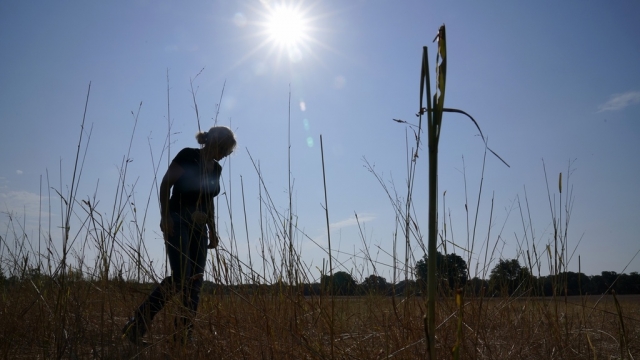Summer is still months away, but the backbone of America's dinner table is already bracing for the heat.
"I think farmworkers are often seen as like the invisible workforce force, especially here in Florida," said Dominique O'Connor.
She is a climate justice organizer for the Farmworker Association of Florida.
According to the Economic Policy Institute, as of 2022 there are roughly 2.4 million farmworkers in the U.S.
SEE MORE: California water data shows change for typically drier months ahead
As heat waves continue to grow in frequency and intensity, many of these workers are finding themselves face-to-face with increasingly dire working conditions.
"It's not enough to just say that, farm workers, need to drink more water, you know — and to take more breaks because — that's not easy. In practice," said O'Connor.
She says many people have no clue just how difficult it can be working for long hours out in the sun, with limited access to shade, breaks and at times water.
According to the Environmental Defense Fund, "Mortality from heat-related illness is 20 times higher for crop workers in the U.S. than private industry and non-federal government workers."
The fund said the average U.S. agricultural worker is exposed to "21 working days in the summer growing season that are unsafe due to heat."
"Farmworkers usually know how to take care of themselves. The problem is that they're not able to," O'Connor said.
Currently, there is no federal standard that protects workers from extreme heat.
"There is so much that people don't know about the agricultural industry and the agricultural supply chain, which is fraught with injustices and inequities and even cases of forced labor," Mike Rios said.
Rios is the executive director of the Fair Food Standards Council. This council oversees the implementation of the Fair Food Program, a partnership between farmers, farmworkers and food companies that is geared toward improving working conditions for farmworkers.
The program emerged from the Coalition of Immokalee Workers' Campaign for Fair Food.
In recent years the program has established a set of heat stress standards with its participating farmers: including providing farmworkers with shade, water, regular rest breaks, training on heat stress symptoms, medical treatment and the ability for workers to stop if they feel ill.
"The fact that a worker can, without fear of retaliation — that's the key right there — without fear of retaliation, has the ability to set themselves aside, rest, take shade, drink water for however long they need, is an incredible step in worker protection," Rios said.
While Rios says the program has been applauded by the U.S. Department of Agriculture, it's the feedback from the farmworkers that has been most meaningful.
Ultimately, the future of our climate remains uncertain, but Rios says the wellbeing of farmworkers doesn't have to be.
Trending stories at Scrippsnews.com




